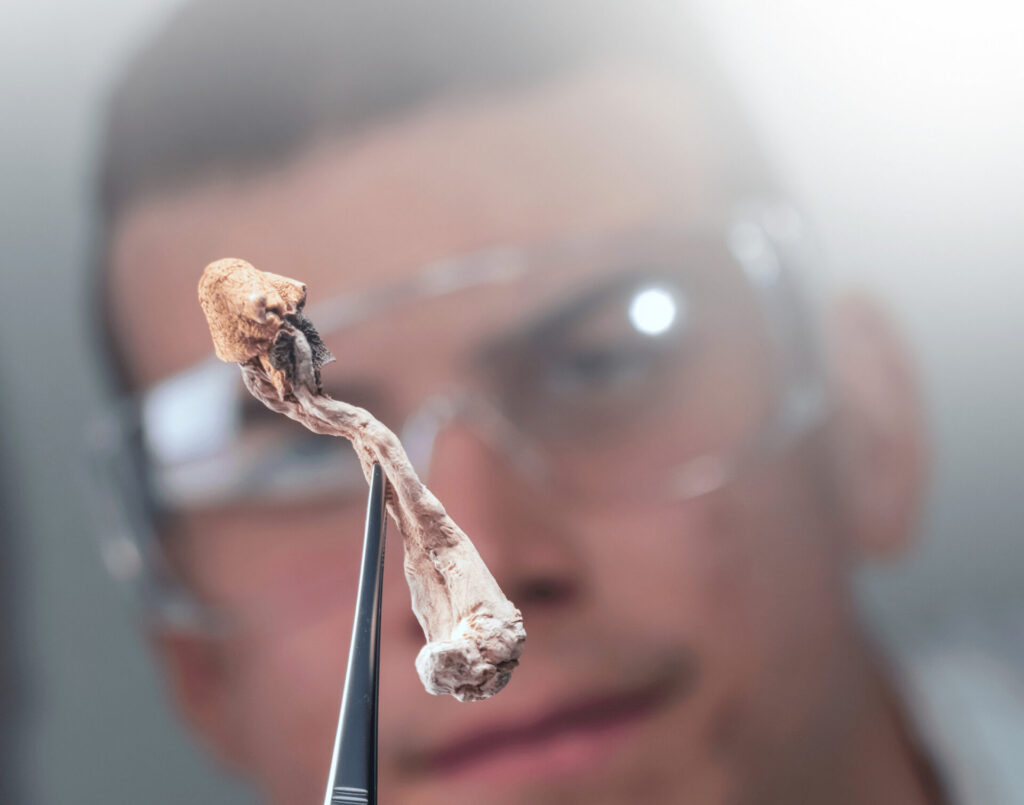
Finding Flow: Navigating Your Creative Block with Microdosing
For many who walk the path of creativity, the dreaded ‘creative block’ is a periodical occurrence that all artists know too well. Amidst deadlines,
DISCLAIMER
* We do not condone the use of any illegal substances whatsoever. This piece of writing was created strictly for educational purposes only. Please read with caution and use this information responsibly. *
Undoubtedly, the science of microdosing is lacking. There are plenty of studies looking at psychedelics in large doses. But microdosing? A majority of the studies out there on microdosing psychedelics are observational. So they can’t establish cause and effect. Does microdosing improve your mood or focus? Or is it merely a placebo?
It can be challenging to suss out causation when we all have are anecdotal accounts. But fortunately, the science of microdosing is moving from an observational field of study to placebo-controlled examinations
In this post, we’ll highlight a couple of promising studies. But the emphasis will be on a Beckley Foundation study that integrates the science of microdosing.
Microdosing involves taking a sub-pharmacological dose of a substance, often using a psychedelic like psilocybin mushrooms/truffles or Lysergamides. A large dose of a psychedelic will transform your senses and enhance your cognitive experience. A large enough amount will send you on a trip into the unknown depths of the mind.
But a microdose? You’ll barely feel anything. So what’s the point? People who microdose Lysergamides, for example, report better focus and more creativity. They have more productivity and feel motivated to get things done. People also report more stable moods, higher cognitive functions, and general well-being.

If you’re struggling with mental health and all the conventional medications haven’t done the trick, microdosing may be for you. Or, even if you’re happy and healthy, you might want that added cognitive boost to get motivated and stay motivated.
Plenty of students find that microdosing gives them that necessary boost during exam time. Creative people like musicians and painters like the “outside-the-box” thinking that microdosing can provide. Business people and entrepreneurs like the cognitive boost and enhanced focus. But how many of these are real cognitive benefits versus a placebo effect?
Dr. John Ioannidis, a professor at Stanford University, isn’t a fan of observational research. In his paper, “Why Most Published Research Findings are False,” he explains that “research findings may often be simply accurate measures of the prevailing bias.”
The only way to truly determine cause and effect in the science of microdosing is to do an experimental study. So that’s what the UK-based Beckley Foundation did in partnership with the Maastricht Programme. Their study was the first performed in a lab to examine the benefits and science of microdosing. Twenty-four healthy volunteers each received single doses of 5, 10, and 20 micrograms of LSD or a placebo. The results were promising.
Researchers believe the brain-derived neurotrophic factor (BDNF) is a critical marker in several neurodegenerative and neuropsychiatric disorders. Therefore, they measured changes in the BDNF by collecting blood samples every two hours and determined changes in blood plasma using an ELISA test.
(An ELISA test detects and measures antibodies in your blood. ELISA stands for “enzyme-linked immunosorbent assay.”)
The Beckley researchers found significant differences between the microdosing volunteers and the placebo group. This data is very promising since scientists associate BDNF with depression, obsessive-compulsive disorder, Alzheimer’s disease, diabetes, and eating disorders.
The science of microdosing doesn’t stop at cognitive benefits. The same Beckley placebo-controlled study looked at pain relief as well. They asked volunteers to submerge their hands in cold water for as long as possible. Called a Cold Pressor Test, researchers aimed to measure pain tolerance. The study consistently showed that the group taking a 20 microgram dose of LSD had significantly reduced pain perception compared to the placebo group.
As the researchers write, “Remarkably, changes in pain tolerance and subjective pain perception induced by the low dose of LSD under these circumstances were comparable in magnitude to those observed after administration of opioids, such as oxycodone and morphine to healthy volunteers.”
Overall, this Beckley Foundation study demonstrated that the science of microdosing is as accurate and objective as the science of “macrodosing.” We know large doses of psychedelics help combat alcohol and tobacco dependency, improve mood disorders and can help resolve the suffering associated with PTSD. Scientific experiments demonstrate that large doses of psychedelics can reorganize individual neurons in your brain and create brand new connections.Yet, most of the science of microdosing has been anecdotal and originates from online communities.
But thanks to this Beckley study (and we certainly hope there’s more to come!), we have solid evidence that microdosing LSD or psilocybin can significantly enhance positive mood and cognition in healthy people while also providing pain relief.
We offer both a Lysergamide and Psilocybin microdosing products! No need to choose. You can have the best of both worlds!

For many who walk the path of creativity, the dreaded ‘creative block’ is a periodical occurrence that all artists know too well. Amidst deadlines,

For the eager minds of the fitness world, discovering fresh ways to elevate their workout game is akin to furthering your journey. Microdosing, a

Let’s face it: New Year resolutions are super tough! As the New Year rolled in, hearts around the world sang with hope, filled with

As the sun reaches its highest point in the sky during the summer solstice and the darkest night looms in the depths of

In this blog, we dive into the transformative practice of immersing oneself in cold water and explore the remarkable benefits it offers. Discover the

Lion’s Mane Mushroom is an all-natural species of fungi that has been in use for centuries to help people improve their health and
GET 10% DISCOUNT WITH NOTIFIED ABOUT THE LATEST NEWS AND UPDATES. NO SPAM, WE PROMISE!
FREE Tracked shipping on orders over €250 to EU countries.
Monday- Friday 8.30am- 5pm (CET)
A range of options available
Guaranteed delivery or your money back